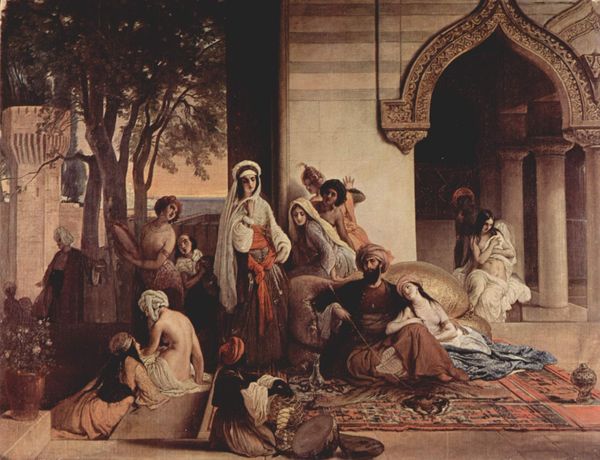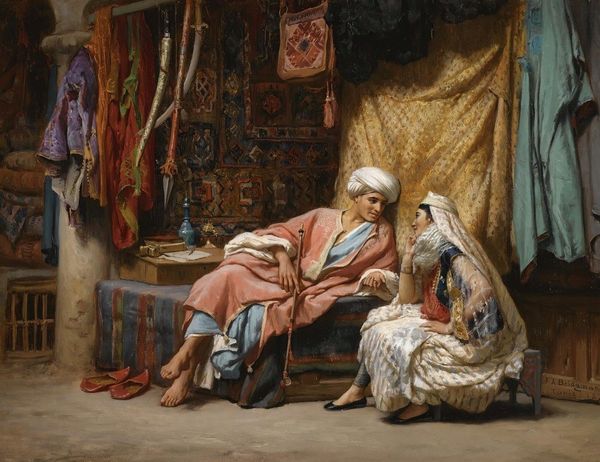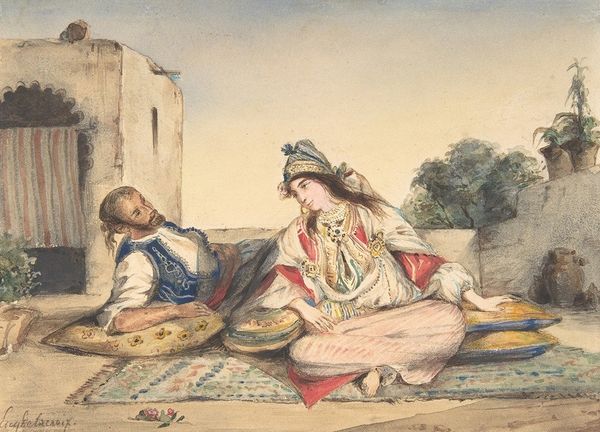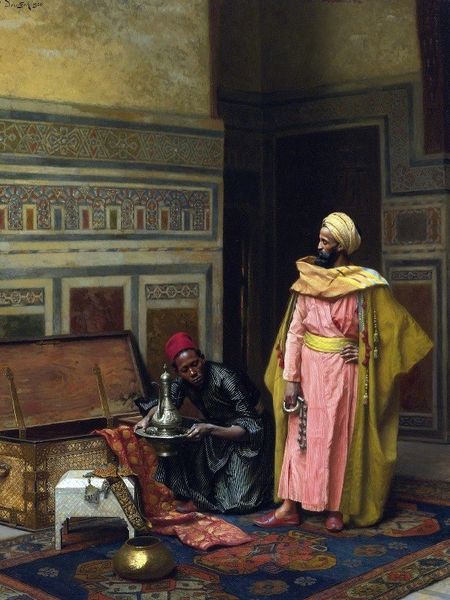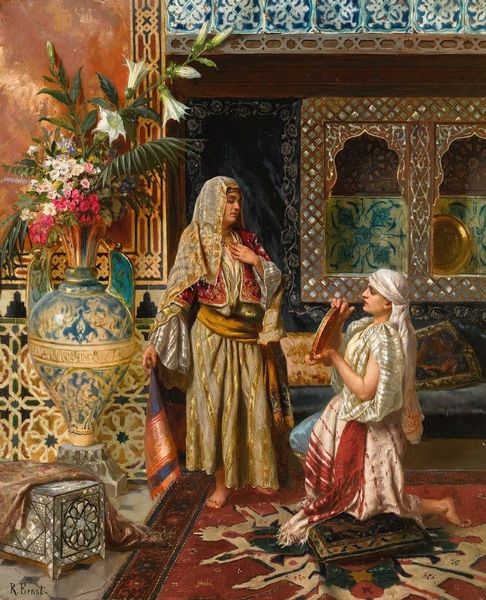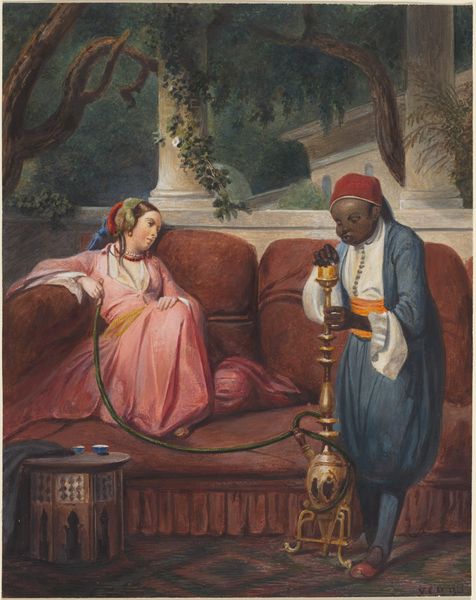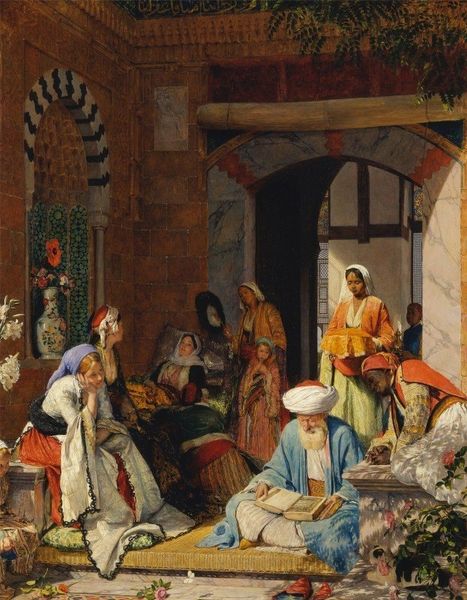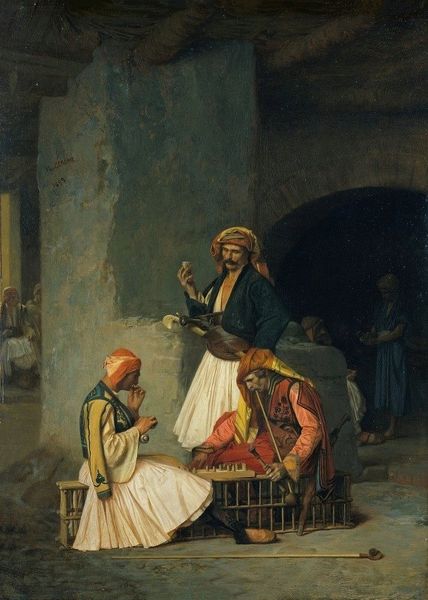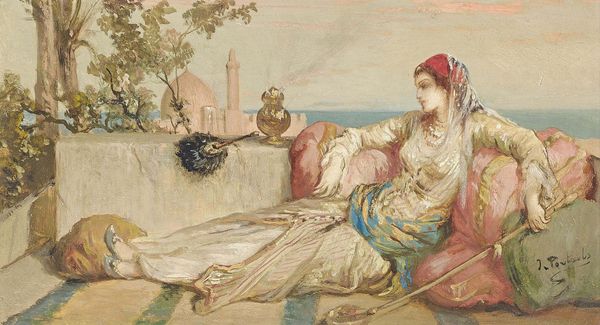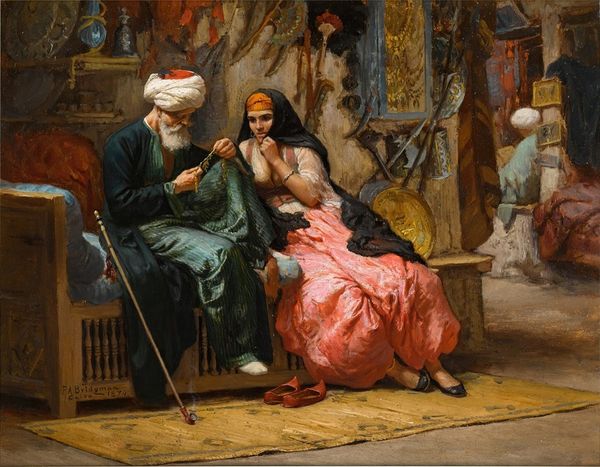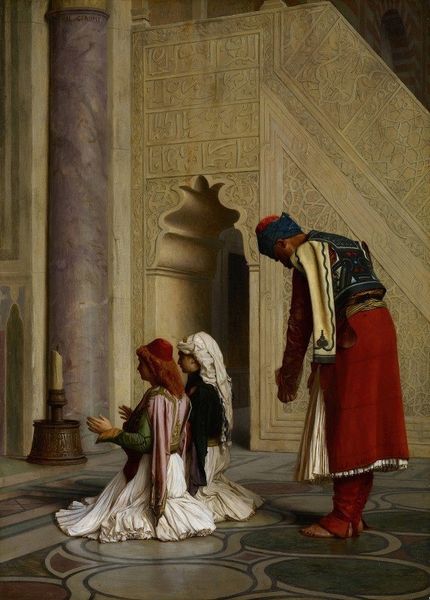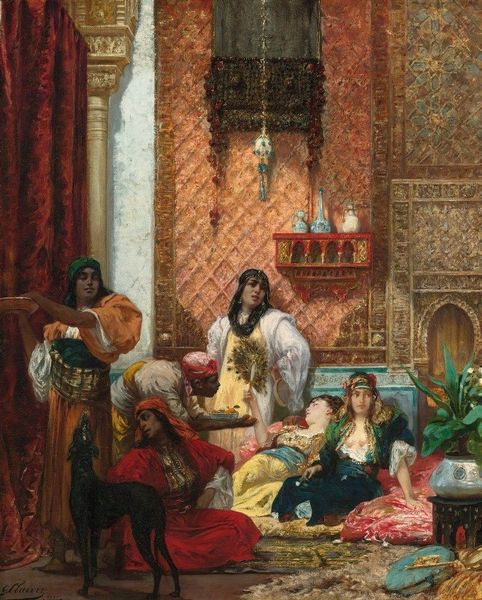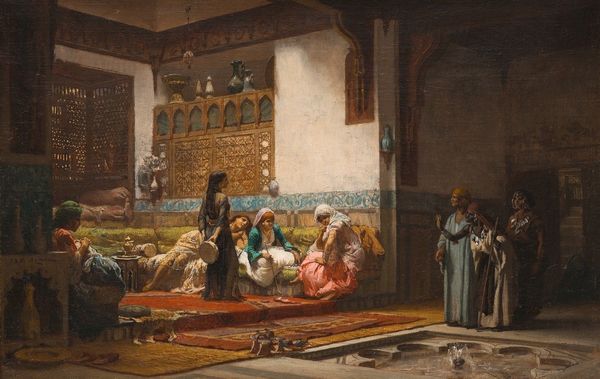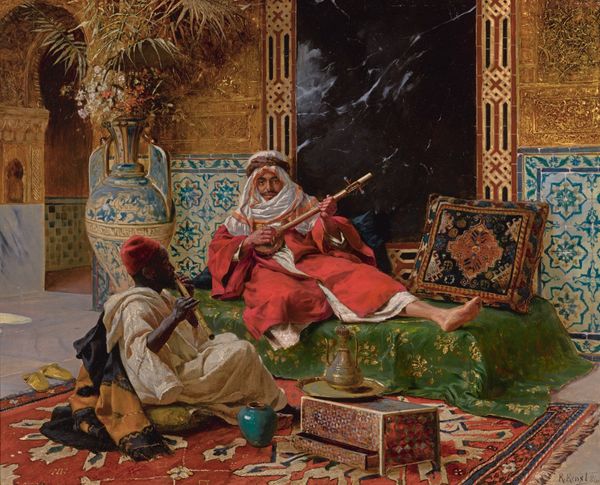
painting, oil-paint
#
portrait
#
gouache
#
figurative
#
festivity
#
painting
#
oil-paint
#
figuration
#
underpainting
#
romanticism
#
orientalism
#
genre-painting
Copyright: Public Domain: Artvee
Editor: We are looking at Johann Peter Krafft’s "Die Türkin," painted in 1825 using oil paints. I’m struck by the vibrant colours, especially the reds and yellows that create a visually rich and textured surface. What catches your eye, looking at this piece? Curator: Immediately, I am drawn to the calculated balance Krafft achieves. Note how the architecture is deployed in tandem with colour. The artist presents a calculated dance between the interior, dominated by warmer hues, and the cooler exterior landscape. What do you make of the textile patterns? Editor: They add depth but are perhaps stereotypical of Orientalist depictions? They contribute to the formal qualities you mentioned, definitely. How do you think they help draw the eye? Curator: Precisely. The patterns on the rug and divan create a visual rhythm. But it is interrupted by the carefully posed figures, their clothing a sophisticated juxtaposition of flat, bolder colours and finely worked detail. Tell me, what is your opinion of the illumination here? Editor: The contrast! It makes the fabric look luminous but almost staged. There’s such precise rendering. I noticed underpainting listed as one of the tags. Curator: Indeed, the underpainting would have been critical for building those layers of light. And note the careful use of glazing to enrich the colour saturation in specific areas, drawing our attention and creating focal points. The woman's costume seems more vibrant. Editor: Now I see. It seems almost photographic with that precision. Thanks to you I am drawn in more effectively now by how the interplay of colour, texture and the carefully managed light sources serve to define this work’s character and presence. Curator: Precisely. The interplay of form and content provides a lens through which to examine culture and, most intriguingly, human visual processing itself.
Comments
No comments
Be the first to comment and join the conversation on the ultimate creative platform.
